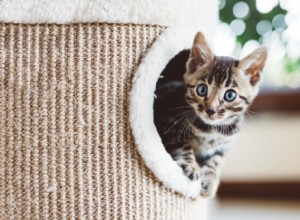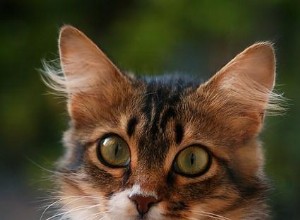
Кошки — любопытные животные со многими странными поступками, которые могут поставить в тупик даже самых знающих родителей кошек. «Странное» поведение вашей кошки может вас сбивать с толку, удивлять, расстраивать или беспокоить, но многие из этих проявлений совершенно нормальны и не являются поводом для беспокойства.
Нажмите на ссылку ниже, чтобы увидеть объяснение поведения каждой кошки:
Если вы когда-нибудь сидели с кошкой на коленях, наслаждаясь сеансом объятий, только для того, чтобы быть прерванным тем, что ваша кошка встала и массировала ваши ноги своими лапами, вы, возможно, чувствовали себя сбитыми с толку. Само по себе это может не быть проблемой, но если когти вашей кошки начнут впиваться в ваши бедра, это, скорее всего, испортит приятный момент.
Это поведение известно как «замешивание», потому что оно напоминает движение замешивания теста для хлеба. Считается, что разминание кошек — это инстинктивное поведение, которому кошки учатся, будучи котятами, чтобы стимулировать живот своей матери и приток молока. . Когда ваша кошка массирует вас, она, скорее всего, чувствует себя счастливой, поэтому воспринимайте такое кошачье поведение как большой комплимент.
Также называемое «бантингом», битье головой других домашних животных или людей — это нормальное поведение кошки, похожее на человеческое «дай пять» или «маши рукой». Когда кошка бьет вас головой, она, скорее всего, просто здоровается и, возможно, передает вам часть своего запаха.
У кошек на мордочке есть пахучие железы, благодаря чему они могут легко метить других, ударяя головой, а быть отмеченным кошкой — это высший комплимент. это показывает привязанность и уважение.

Nothing is more frustrating than watching your cat jump up on the counter or desk just to knock your things over one by one. It may seem like they have a clear agenda to simply push your buttons along with your belongings, but your cat isn’t deliberately trying to annoy you.
The behavior stems from a strong hunting instinct that makes them acutely aware of their surroundings. In their pursuit of prey, cats constantly test things in their environment to see if they are alive and viable food sources. They accomplish this by using their paws to bat items around and check if it’s alive and, if so, whether it will fight back or be an easy kill.
During this investigative process, they might knock a few things over from time to time. Try not to show irritation — doing so gives them your attention, which is a close runner-up to the juicy meal they were hunting for. Even if your energy is angry, it still means you’re paying attention to them when you weren’t a moment before, and your cat may learn to repeat this behavior to achieve the desired outcome (much to your annoyance).
A better solution would be to purchase a food puzzle toy to challenge and reward your cat’s hunting instincts in a less destructive way.
Your cat hiding in small spaces, like bathroom sinks, tiny baskets, and boxes, can be both amusing and frustrating, especially when you’ve purchased a beautiful, spacious cat bed for them. However, this is a super common and normal cat behavior that shouldn’t concern you.
Cats are both hunters and prey animals, so hiding in small spaces in the wild allowed them to watch for both prey and predators . When your cat is hiding in a small box or under the bathroom sink, they are following their natural instinct to find a place that makes them feel safe and content.

Many cat parents have experienced the unpleasant “gifting” of a dead rodent or bug from their cats before. It’s difficult to know exactly how to react to this when our cats seem so pleased with themselves, but why do cats bring us these “presents,” and how should we respond?
Cats are hunters by nature , and it’s believed that our cats bring us “presents” as a way of thanking us for filling their food dishes daily and providing them with shelter . Some animal behaviorists think that cats may bring us their “extras” so that we can feed ourselves or store them for later.
Whatever the exact reason is, cats seem only to bring “presents” to their loved ones, so this is a compliment from your cat, even if it’s a bit morbid for our tastes. It’ll be hard to discourage this behavior since it’s part of the natural cat hunting instinct, but you can try to calmly accept the gift without freaking out or praising your cat. If you really want it to stop, you can try putting a bell on your cat to scare away the prey.
Depending on your cat’s breed, your cat may be chattier or quieter than other cats. However, if you notice a “chattering noise” coming from your cat when they look out a window, know this is entirely normal.
Our cats often chatter their teeth together when they spot potential prey , such as a bird through the window. Animal behaviorists believe this is a frustrated reaction because your cat is unable to go after the prey they spotted. It may also be an excitable reaction or a way that your cat prepares their muscles to kill prey. Either way, this is a normal reaction that shouldn’t worry you.
Once your cat's ears stand up around two weeks old, they can be rather twitchy at times. Our cats’ ears are highly expressive and sensitive to noises around them, so cat ears can mean many different things:
Most of the time, a cat’s ears twitching is simply a behavioral response to stimulation or noises around them. However, if you notice your cat scratching or shaking their head more than usual, we recommend taking them to their veterinarian for a checkup because they could have ear mites or an infection.

Your cat has their own water bowl, but they love to drink water from the kitchen sink faucet — sound familiar? While this may be puzzling from our point of view, it makes perfect sense from their perspective.
Cats’ wild ancestors instinctively knew to drink from running water sources, such as a river, because they were less likely to be contaminated than a stagnant water source. While your cat may not have to worry about contaminated water in their water bowl, this instinct is still strong and may explain our cats’ interest in running water sources.
Domestic cats evolved from hot, desert climates where they learned to conserve water very efficiently out on the savannah. Though it may be much colder where you live now, they’ve retained this biological trait that requires them to drink very infrequently. When they hear the sound of running water coming from the faucet, it might remind them that it’s time to take a sip .
Cats may intensely stare someone down as a sign of dominance, so when your cat slowly blinks at you, take it as a compliment. It’s believed that cats slowly blink at humans and other cats to communicate that they feel safe and happy.
It’s challenging to be patient with your cat when they wake you up at dusk with an unwanted serenade. However, cats are nocturnal creatures, and it’s not atypical for them to have increased vocalization at night. Young cats and kittens may be especially playful and vocal at night. We also recommend considering your cat’s breed as certain breeds, like Siamese cats, are naturally more vocal.
If you’re cat is meowing all night, provide your cat with several vigorous play sessions throughout the day. However, skip a play session immediately before bedtime because you may rile your cat up more. Provide your cat with self-directed cat toys , like soft balls, that your cat can play with at night to keep them entertained and quieter.
If your cat is excessively vocal at night, suddenly yowling, or pacing, this could be a sign of a medical problem or pain. Speak with your veterinarian if your cat’s nighttime behavior suddenly changes or they are yowling.
Litter box habits can provide us with important insights into our cat’s health and habits. If your cat occasionally goes outside their litter box, this is likely not a cause for concern and may be their reaction to an untidy litter box.
Pro Tip: There should always be one more litter box than the amount of cats, and to keep things clean, consider using litter that’s dust-, scent-, and clump-free.
If your cat is suddenly going to the bathroom outside their litter box frequently, this can signify that they are having a medical problem that makes it difficult for them to get to their litter box in time. Some possible conditions may include a urinary tract infection, stress cystitis, bladder stones, Feline Lower Urinary Tract Disease (FLUTD-blocked), and kidney disease, so be sure to see your vet if this behavior persists.

Nothing is more frustrating than being fast asleep and waking you up by zooming through your hallway or bedroom. However, this is an entirely normal cat behavior that’s an expression of their nocturnal hunting instincts .
Many wild cats save up energy during the day to hunt at night. Although our domesticated little lions no longer have the need to hunt prey after dark, they still need to find a way to release that energy — which can result in some serious zoomies.
Late-night laps keeping you awake? To prevent this behavior, try exercising your cat as much as possible during the day, but avoid getting them riled up with play before bed to minimize random sprints and bursts of energy at night. You can also try feeding your cat before bed to decrease their “need” to hunt at night or give them a food puzzle to keep them occupied while you sleep.
Cats are amazing, curious creatures that we love watching and trying to figure out. Most bizarre cat behaviors can be easily explained away by our cat’s natural hunting instincts and genetics. Still, you may occasionally encounter behaviors, such as excessive vocalization or head shaking, that may leave you feeling concerned about your cat’s health.
No cat parent should ever hesitate to take their cat to the vet to be checked out, which is why pet insurance is so important. Pet insurance gives you a financial safety net so that you never have to think twice about taking your cat to their vet.
Compare different cat insurance plans today so that you can have peace of mind that your cat will always have access to the gold-standard veterinary care they deserve.

Глобальная пандемия изменила всю нашу жизнь. Многие из нас «социально дистанцируются», постоянно оставаясь дома. Некоторые из нас потеряли работу или не могут работать. Посреди всех этих трудностей нужно проявить сочувствие. Теперь вы знаете, что чувствует ваша кошка. Все. . Время. До отключения в

Те, у кого были кошки, знают, что их поведение может быть сложным:иногда вы встречаете любящую кошку, независимую кошку или даже кошку, которая кусается - или все виды поведения у одной кошки! Не существует единой причины, объясняющей все укусы . Поэтому в этой статье AnimalWised мы рассмотрим, поч